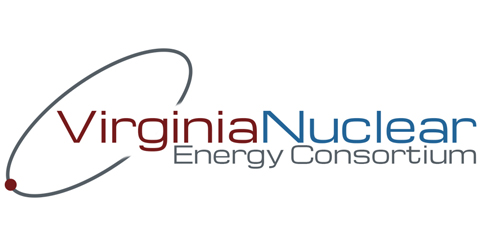- Virginia is a leader in nuclear-related fields, including energy, education
- Almost all of state’s carbon-free electricity comes from its four reactors
- Organized labor a vocal advocate for nuclear energy’s expansion
June 9, 2016—Government officials and industry and education leaders met in Richmond, Virginia, this week to galvanize efforts among the state’s nuclear-related stakeholders to more consistently promote the technology and its benefits.
The June 6 Virginia Nuclear Energy Summit was co-sponsored by the Nuclear Energy Institute and the Virginia Nuclear Energy Consortium (VNEC), an organization formed in 2013 to advance the commonwealth’s nuclear industry.

NEI COO Maria Korsnick and VNEC Executive Director Marshall Cohen urged attendees at the Virginia nuclear energy summit to be “nuclear brand ambassadors.” [Photo: NEI]
More than 100 attendees heard that Virginia is one of the top 10 states in nuclear-generated electricity. Dominion Generation’s four reactors at its North Anna and Surrypower stations generate 96 percent of the state’s carbon-free electricity and 39 percent of all its electricity, more than any other source.
NEI Chief Operating Officer Maria Korsnick noted that Virginia’s nuclear power plants also avoid 22 million metric tons of carbon dioxide per year, the rough equivalent of removing 5 million passenger cars from Virginia roads.
Korsnick noted that apart from the nuclear energy facilities, the state hosts several other companies in nuclear-related fields, including medicine, defense, research and manufacturing. She challenged all employees in these fields to be “nuclear brand ambassadors” and to work together to promote the technology’s benefits.
Korsnick said NEI and VNEC will soon undertake a broad study of the state’s nuclear industry. “Based on the results, we will develop and implement a greatly enhanced program to demonstrate nuclear energy’s economic value and job-creation potential,” she said.
In Tennessee, 58 companies that operate in the nuclear industry participated in a similar study. Surveys also are underway for North and South Carolina. In each case, NEI partnered with state-based organizations, like VNEC, to execute the survey.
Virginia Secretary of Trade and Commerce Maurice Jones said he considers the state to be a “leading global entity” in nuclear energy education, pointing out that Virginia’s universities offer two of the 31 U.S. nuclear engineering degree programs. Jones also said the state expects electricity demand to increase more than 4,000 megawatts above the current 70,000 megawatts by 2020, a goal that he said cannot be achieved without encouraging more nuclear energy development.
Central Virginia Community College Director of Strategic Initiatives William Sandidge noted his school’s partnership with Areva Inc. to develop the next generation of nuclear technicians.
Matt Kellam, Dominion’s supervisor of strategic staffing, suggested that the state could push skills training further down to high schools, where students could be provided an “energy-specific curriculum” at earlier grades.
Jim Hunter, director of utilities at the International Brotherhood of Electrical Workers(IBEW), said training pipelines of any kind should lead to actual jobs, a view shared by Dominion, Areva and other employers present.
Jones encouraged participants to share ideas generated by the NEI-VNEC study and the summit itself with him and Gov. Terry McAuliffe (D) so that they may act on them.
